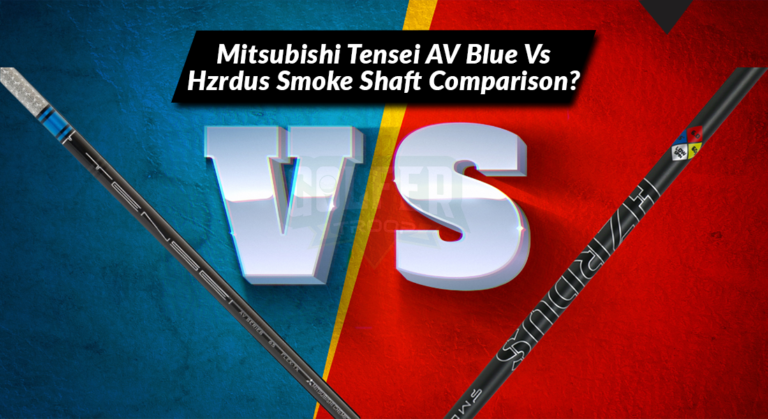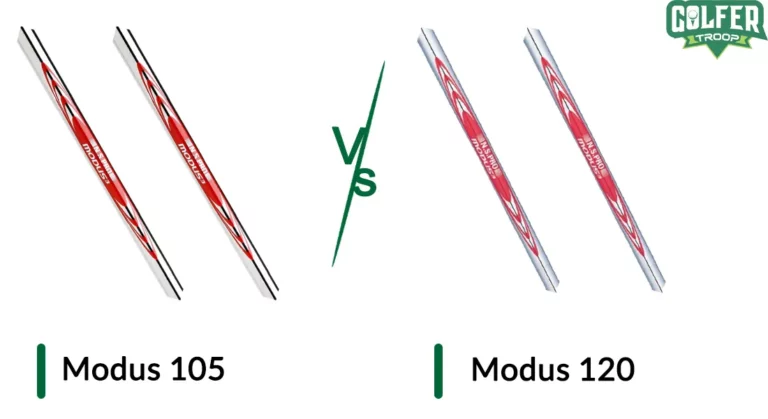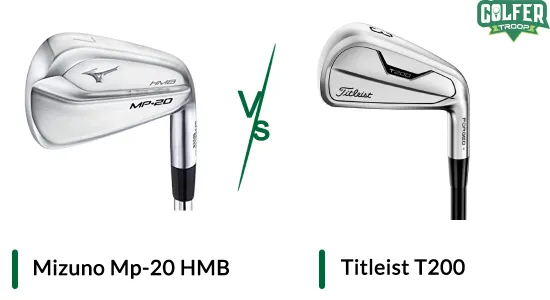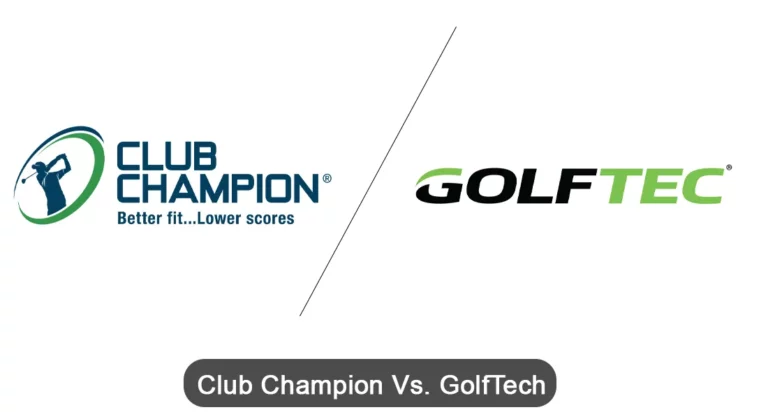Mizuno JPX 921 Hot Metal Pro vs. Forged: Which Iron is the Right Choice?
Mizuno has come up with two fresh irons: Mizuno JPX 921 hot metal pro and Mizuno 921 hot metal forged in September. These two have been the two most anticipated irons for this year, and they are finally here. Both are efficient and get the job done but they are also different in various aspects.
Both the JPX 921 hot metal pro and the forged one have their specialties and attractions. The JPX 921 Pro is more attractive for its players’ distance and dispersion rate. On the other hand, the JPX 921 forged has a sleeker look and a similar feel to the T2000s, which is also very forgiving for a forged iron.
Let’s take a look at the comparison between JPX 921 Pro Vs JPX 921 Forged. Reading the article, you can also learn about the two Mizuno irons. Here we have also gathered the comparison between these two so that you can easily choose the right one for you.
Overview of Mizuno JPX 921 Hot Metal Pro
The JPX 921 Hot Metal Pro has some exciting new features, including the use of Cromoly and COR-TECH.
The new design also creates better stability, increased ball speed, and a better feel. First, let’s take a look at the pros of Hot Metal Pro.
However, it does have some negative sides to it. The JPX 921 Hot Metal Pro falls short in the following areas.
Overview of Mizuno JPX 921 Hot Metal Forged
Like the JPX 921 Hot Metal Pro, the Forged version also boasts some similar features. The JPX 921 Forged iron is forged authentically in Japan.
A forged iron provides excellent ball speed and is known as a player iron. It has a shorter blade length and reduced offset.
Like the Hot Metal Pro, the Hot Metal Forged has a pearl brush finish and a stability frame. In this part of the article, let’s review the positives of JPX 921 Forged.
There are a couple of shortcomings of the JPX 921 Forged. We have listed them below.
JPX 921 Hot Metal Pro vs JPX 921 Forged: Quick comparison table
To calm the debate between JPX 921 Hot Metal Pro and JPX 921 Hot Metal Forged, we have created a side-by-side comparison here. Take a look at the comparison below to decide which is the right metal for you.
| Feature | JPX 921 Hot Metal Pro | JPX 921 Hot Metal Forged |
| Price | $125-$365 | $175-$1225 |
| Look & feel | Similar look and feel, top line and club size are very close | Similar look and feel, top line and club size are very close |
| Forgiveness | More forgiving | Comparatively less forgiving |
| Handicap | Low to mid handicap | Mid handicap |
| Dispersion rate | Higher dispersion rate | Lower dispersion rate |
What are the differences between JPX 921 Pro and JPX 921 Forged?
Although the JPX 921 Hot Metal Pro and JPX 921 Forged have some striking similarities, they are also different on various grounds. Here you can find a more detailed difference between the two irons.
Build
The main difference between JPX 921 Pro and JPX 921 Forged is in the build. In a forged iron, the metal is compressed to achieve the desired look.
On the other hand, the hot metal pro iron is cast by pouring hot metal on the mold to get the desired shape.
The look and feel of both are very similar for Mizuno JPX 921 hot metal pro and JPX 921 forged.
Disperse rate
The JPX 921 Hot Metal Pro has a higher dispersion rate than the JPX 921 Forged. The distance rate is quite consistent with both clubs.
However, if you are looking for a more beginner-friendly iron, the JPX 921 Pro’s dispersion rate will suit you better.
Spin rate
Both of these irons have great spin rates. However, if you look at the table below, you can find the differences in the spin rate between the JPX 921 Pro and JPX 921 Forged.
| Club Name | Spin Rate |
| JPX 921 Hot Metal Pro | 5550 |
| JPX 921 Hot Metal Forged | 6499 |
Ball Speed
The ball speed will depend on the player and the hit, so that it will vary. However, you can take a look at the following data on ball speed with these two irons for your comparison.
| Club Name | Ball Speed |
| Mizuno JPX 921 Hot Metal Pro | 135.3 |
| Mizuno JPX 921 Hot Metal Forged | 132.4 |
So; we can say the ball speed for both the Pro and Forged are quite similar. The Pro has a slightly higher ball speed.
Club Speed
The club speed for both the JPX 921 Pro and JPX 921 Forged are pretty close since they have a similar build and feel.
| Club Name | Club Speed |
| Mizuno JPX 921 Hot Metal Pro | 92.3 |
| Mizuno JPX 921 Hot Metal Forged | 91.4 |
As you can see, the Pro edges out the Forged one by fractions.
JPX 921 Pro or JPX 921 Forged: Which one should you choose?
To choose the right iron, you must assess your playing ability. In the case of JPX 921 Pro and JPX 921 Forged, both are amazing irons.
If you want to select between these two, you need to know first what type of play you are comfortable with.
If you are a beginner, the JPX 921 Hot Metal Pro may be your better option. It has a sleeker but wider build and feels good in the hand. It has more forgiveness and a better dispersal rate. It’s also a good distance iron.
The JPX 921 forged is called a players iron. If you can work with a little less forgiveness, you can easily play well with the forged iron. It does have a great feel and improved stability in the world of forged irons.
Especially if you are previously well accustomed to playing with the T2000s, you’ll feel right at home with the JPX 921 Forged.
Frequently asked questions (FAQs)
In this section, we have covered some Frequently Asked Questions. You can find the answers here if you have any further questions on the JPX 921 pro and JPX 921 forged.
Which one is the better game-improvement iron: JPX 921 Pro or JPX 921 Forged?
The Mizuno JPX 921 hot metal pro iron helps a player more in case of game improvement when compared to JPX 921 Forged.
The hot metal pro is more forgiving and also helps with the ball speed. The JPX 921 Forged is comparatively known as players’ iron and is mostly used by skilled players.
Is JPX 921 Pro more forgiving than JPX 921 Forged?
Yes, the JPX 921 Pro is more forgiving than the JPX 921 Forged. The JPX 921 Pro’s slightly wider build makes it more forgiving.
How does spin rate change in JPX 921 Pro vs JPX 921 Forged?
The spin rate is slightly higher in the JPX 921 Forged compared to the JPX 921 Hot Metal Pro. The spin rate of the Forged can go up to 6500s, whereas the Pro’s spin rate stays below 6000s.
Which handicap should I play on the JPX 921 Pro and the JPX 921 Forged?
A low to mid-handicap player should play with the JPX 921 Pro. On the other hand, a mid to high-handicap player should play with the JPX 921 Forged.
How does the dispersion rate change in JPX 921 Pro compared to JPX 921 Forged?
Testing out the JPX 921 Pro and JPX 921 Forged, the dispersion rate is better in the Pro than in the Forged. The dispersion is pretty consistent with both clubs.
Conclusion
Mizuno has never failed to develop a sleek player-friendly club, and none of their irons ever disappoint. Both the Mizuno JPX 921 Hot Metal Pro and the JPX 921 Forged are great choices.
The look that Mizuno has come up with for these two irons is attractive in both cases. From this article, you can now find the differences between the irons, the similarities, and how to choose the right one for you.
Depending on what type of player you are and which club you’re comfortable with, you can utilize this discussion to decide between the two clubs.
Read Also: Srixon ZX5 vs. Mizuno JPX 921: Which Iron Reigns Supreme?
Read Also: Mizuno MP-20 MMC Vs. JPX 919 Forged: Which Iron Better Fits Your Needs?
Read Also: Mizuno JPX 919 Forged vs. TaylorMade P790 Iron Comparison
Read Also: Mizuno MP-20 HMB Vs. Titleist T200: Which Iron Better Fits Your Needs?
Read Also: Mizuno MP-57 vs. MP-67: Find Out Which Iron Fits Your Needs?
Read Also: Comparing Mizuno MP 59 vs 69: Which Iron is Right for You?
Meet Jalal, a passionate golf writer and the driving force behind Golfertroop.com, your go-to destination for all things golfing! Whether you’re a seasoned golfing veteran or a beginner taking your first swing, Jalal is here to assist you in making the most out of your golfing experience.




![Who Makes Lazrus Golf Clubs? [Behind The Brand]](https://www.golfertroop.com/wp-content/uploads/2023/09/Who-Makes-Lazrus-Golf-Clubs-768x419.png)

